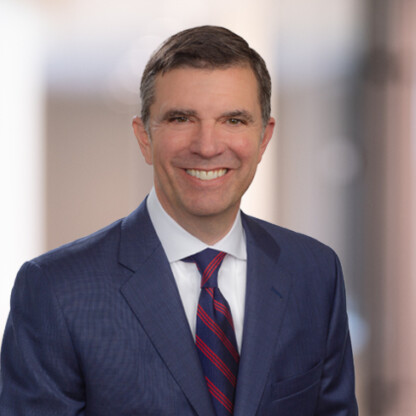The October 11, 2013 U.S. Court of Appeals for the 11th Circuit oral argument on the pivotal FCPA cases, US v. Rodriguez and US v. Esquenazi, drew a packed house and national press coverage. At issue was the FCPA’s definition of a “foreign official.” Foley represents Carlos Rodriguez, a former executive of Terra Communications Corp., who was convicted of conspiring to bribe officials at Haiti Teleco.
Foley Attorneys David Simon and Pam Johnston argued that, although Haiti Teleco was owned by the government, it was not an “instrumentality” of the government and therefore the company’s officers were not “foreign officials.”
Foley Partners Kenneth Winer and Jaime Guerrero, Senior Counsel Lauren Valiente, and Associate James Cirincione rounded out the Foley team representing Rodriguez.
Various news services and legal bloggers provided details and analysis:
Compliance Week (10/11/2013). Compliance Week reported one observer evaluating the stakes involved in the decision: “’A ruling for the appellants . . . could result in the loss of a major tool in the government’s FCPA arsenal and could result in calls for a legislative fix.’”
InsideCounsel (10/16/2013). Noting the extra the Court allowed for arguments, InsideCounsel explained the potential impact of a ruling favorable to the defendants: “Narrowing instrumentality’s definition could cut down on overall FCPA litigation, as prosecutors have pushed the limits of the law under a 2011 U.S. district court decision that identified state-run company employees as foreign officials.”
Law360 (10/11/2013): David Simon was quoted in an October 11, 2013 Law360 article titled “Terra Execs Ask 11th Circ. To Curb FCPA’s Reach.” The article explained how Foley’s argument called for jury instructions that stipulated that, “in order to qualify as instrumentality, Telco needed to be part of the government, such as an agency or a department created in the constitution by statute. ‘Ownership is an asset of the government, not part of the government,’ Simon said.”
JAC Blog (WDC Media) (10/15/2013): In his “Just Anti-Corruption” blog, Douglas Gillison described the appeal’s significance as “bringing a core challenge to the government’s interpretation of the Foreign Corrupt Practices Act to the appellate level for the first time.
Wall Street Journal’s Risk & Compliance Journal (10/15/2013): The Wall Street Journal’s Risk & Compliance Journal quoted Pam Johnston: “The 11th Circuit is writing on a blank slate with regard to the meaning of what is a ‘foreign official’ under the FCPA. . . It’s obvious from the arguments that the court will work hard to try to get it right.”
In the same article, David Simon explained, “Our point is that the government hasn’t drawn a clear line [about the concept of instrumentality], and in a criminal case you have to have a clear line.”
FCPA Professor (10/14/2013): In its article “Oral Arguments Heard in Historic ‘Foreign Official” Challenge,’ the popular industry blog FCPA Professor provided color commentary on the proceedings and singled out David Simon, who “stepped into a hot panel and he was ready to go.” In its simplest terms, he argued that “the jury instructions as error which requires reversal.” David was “quick and well prepared” and fenced with the justices over the “instrumentality” question. Finally, one of the justices “ended by asking if the argument is not that the statute is vague? Simon responded ‘No, we choose our definition – a unit of government.’”
FCPA Report (10/23/2013): The FCPA Report offered a detailed account of the oral arguments, along with a comprehensive background on the case’s evolution in its article, “A Hot Bench Hears Oral Arguments in Historic Challenge to the Definition of ‘Foreign Official.’” In noting the vagueness of the statute, David Simon is quoted as saying: “This goes back to some fundamental principles of criminal law. If a standard is this hard to figure out, you shouldn’t put people into jail for it.”


